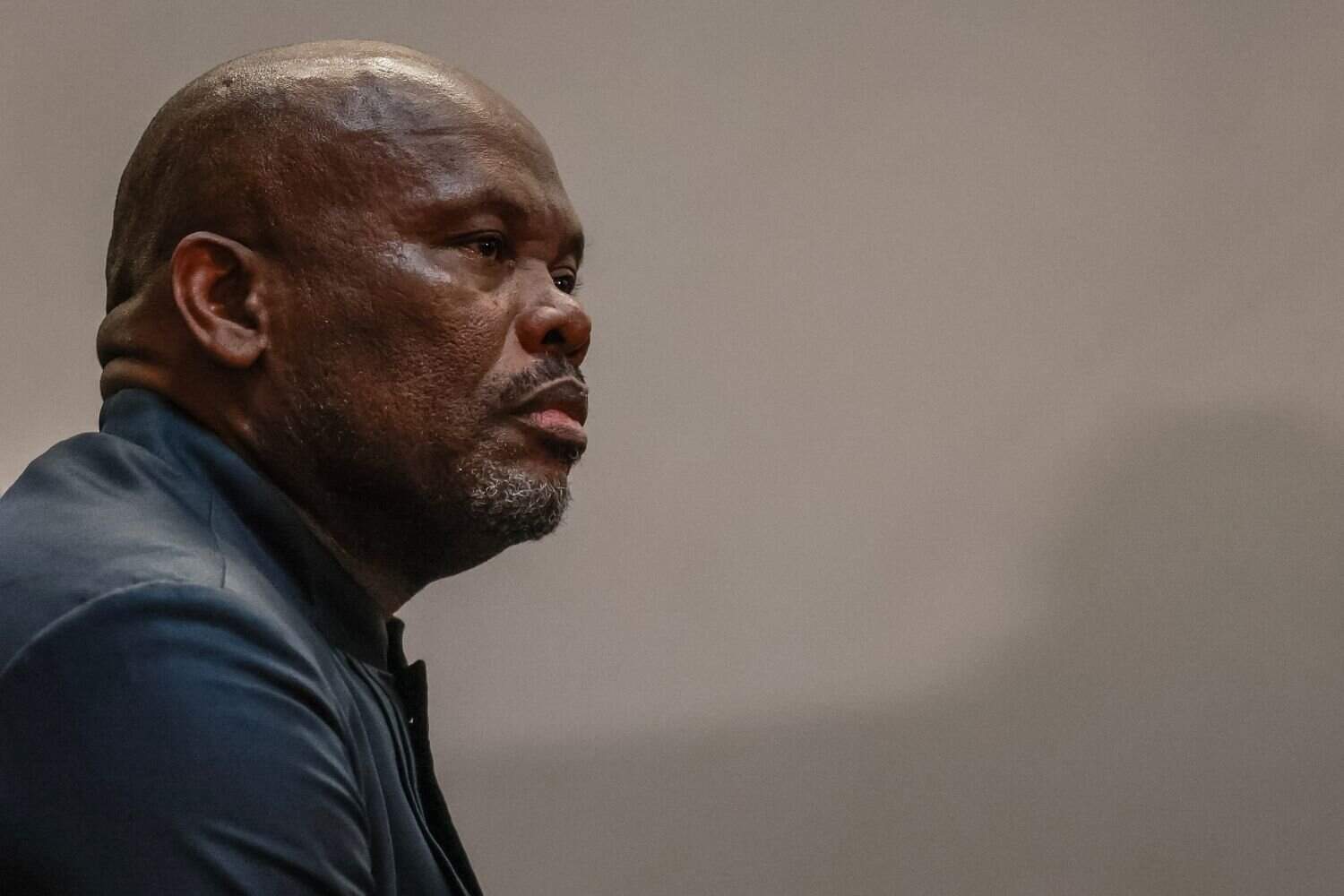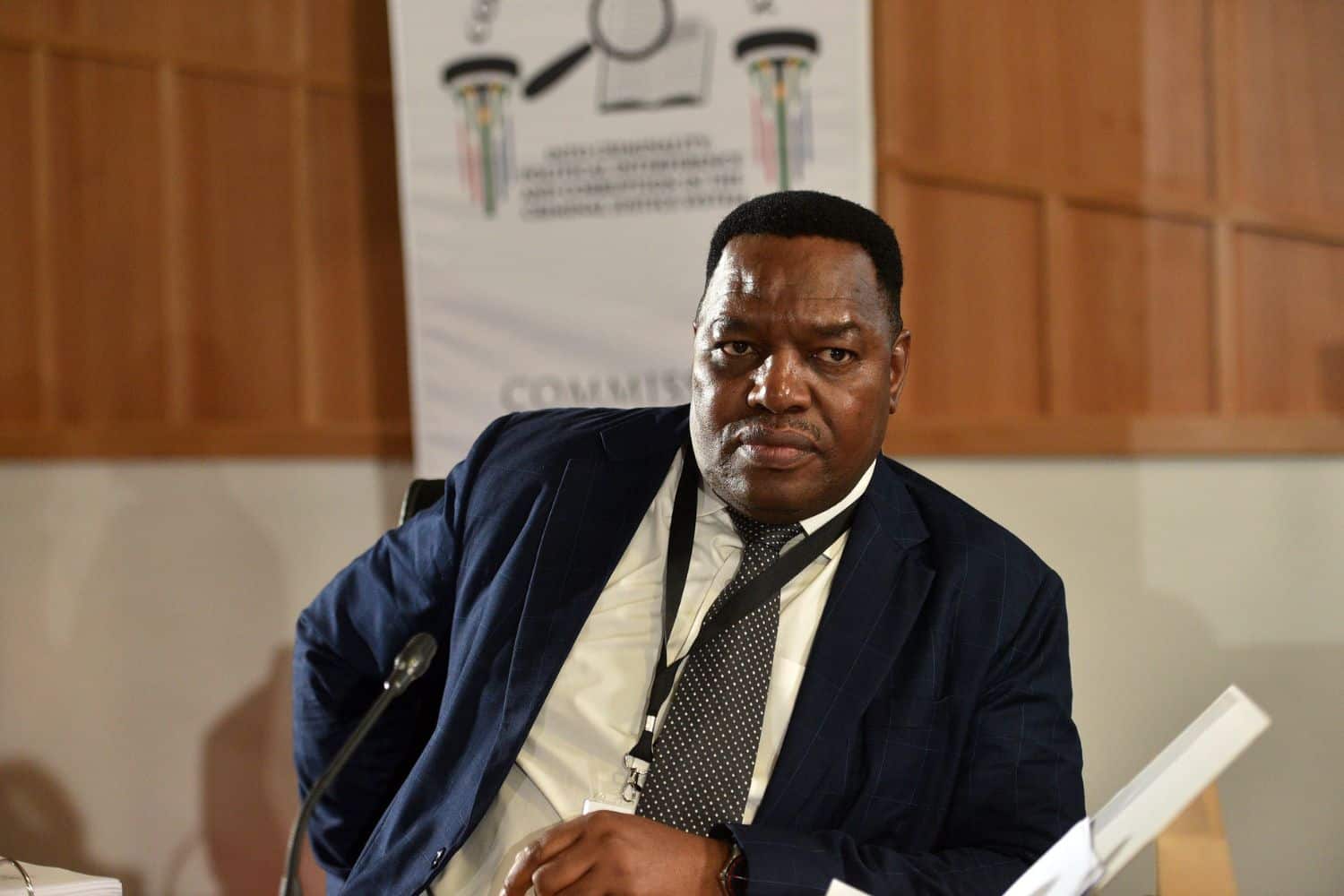The deputy national police commissioner's alleged ties to Vusimuzi 'Cat' Matlala is under investigation.

National police commissioner Fannie Masemola has detailed how Shadrack Sibiya, deputy national police commissioner for crime detection, attempted to assert control over criminal case dockets and challenged the oversight of the political killings task team by a colleague.
Masemola concluded his testimony on Tuesday before the Madlanga Commission of Inquiry in Pretoria.
The commission is investigating allegations of political interference, corruption and collusion in the criminal justice system, following claims by KwaZulu-Natal (KZN) police commissioner Nhlanhla Mkhwanazi.
Madlanga commission hears Masemola’s testimony about Sibiya
During proceedings, Masemola said that upon Sibiya’s appointment to his current role in June 2023, three points of contention surfaced almost immediately.
Firstly, Sibiya wanted control over the South African Police Service’s (Saps’) cold case unit, which handles unsolved criminal cases.
Masemola described this request as “unusual,” pointing out that the unit had always reported to the office of the national police commissioner.
However, he told Sibiya, who was recently suspended after initially being placed on leave of absence, to focus on crime detection.
“I did explain to him that you have just been appointed, you have this elephant that you must deal with.
“So you can’t be looking for a piece of hair from the tail of the elephant,” Masemola told the commission.
The second issue involved Sibiya’s insistence that Crime Intelligence head Dumisani Khumalo should not retain counter-intelligence dockets.
Watch the inquiry below:
According to Masemola, Sibiya argued that the cases should be reassigned to detectives.
Masemola disagreed, explaining that the dockets were “sensitive” and should not be accessed by any police officer.
“I once again advised him [Sibiya] that those dockets are minimal to the amount of work that you have at your hand.”
Sibiya targeted political killings task team
Thirdly, Sibiya was displeased that Khumalo oversaw the political killings task team (PKTT) – whose disbandment by Police Minister Senzo Mchunu is central to Mkhwanazi’s allegations.
Masemola said Khumalo had confirmed that the task team was “a well-oiled machine” requiring only occasional oversight.
READ MORE: Masemola says Mchunu’s anger over ‘police doing a good job’ was ‘quite strange’
Therefore, the PKTT’s work did not interfere with his duties in Crime Intelligence.
“It’s not a full-time job for him so the status quo should remain.”
Masemola said that Mchunu – currently on special leave – later raised similar concerns.
“I gave the minister the same responses as those I gave to Lieutenant-General Sibiya to say there’s nothing wrong with the setup that we have in the organisation.”

Mkhwanazi previously alleged that Sibiya and Mchunu colluded to disband the PKTT to protect and halt investigations into criminal syndicates in Gauteng.
It is claimed that both have links to tenderpreneur Vusimuzi “Cat” Matlala, who has been charged in connection to the attempted murder of his former partner, Tebogo Thobejane.
The businessman was denied bail last week.
Sibiya sought control of dockets
After the lunch break, Masemola said he believed Sibiya aimed to control the dockets under police investigation.
“If you have control of the whole terrain of dockets, then it means there is nothing that will fall outside that you won’t know [about] and you’ll be able to manage whatever you want.
“The reason is basically to show there is interest to have control – right from the beginning – of all case dockets.”
READ MORE: Court dismisses Shadrack Sibiya’s application to go back to work
Masemola added that it was uncommon for a minister to interfere in the housing of dockets.
“It’s unusual for a minister to get involved in determining who investigates what docket.”
He said that in some instances, Sibiya would bypass the chain of command and report straight to Mchunu instead of the national police commissioner as required.
Sibiya investigation
Later, Masemola said Sibiya was investigated for misconduct for instructing that the PKTT’s dockets be withdrawn and shelved at Saps’ head office in Pretoria.
This obstructed investigations and was defeating the ends of justice, according to the national commissioner.
Sibiya is also accused of defying Masemola’s orders regarding the task team’s phase-out.
Furthermore, his alleged association with Matlala was investigated.
“While there are allegations of association with individuals under investigation, these remain unsubstantiated and require further criminal investigation,” Masemola told the commission.
Masemola further said that records obtained from Matlala’s cellphone revealed communications suggesting Sibiya acted to implement the minister’s directive to disband the PKTT urgently and forcefully.
“This records suggests that Sibiya’s actions were not procedural, but rather tied to deeper connections with people identified as members of the [drug] cartel.
“The timing and urgency of his compliance appeared to align with the imperatives to shield cartel members from ongoing investigations.”
NOW READ: Madlanga commission: Mkhwanazi questions Sibiya’s promotion despite ‘questionable background’
Support Local Journalism
Add The Citizen as a Preferred Source on Google and follow us on Google News to see more of our trusted reporting in Google News and Top Stories.








